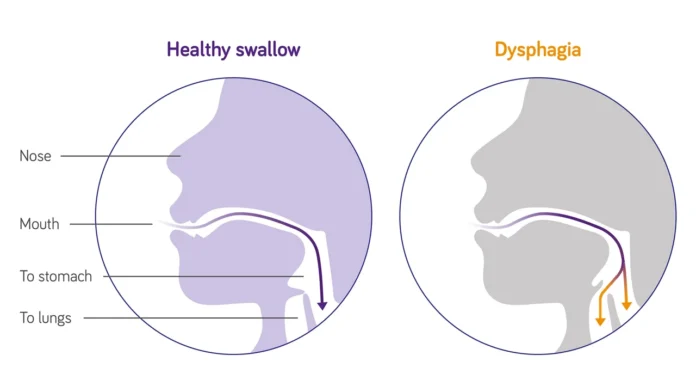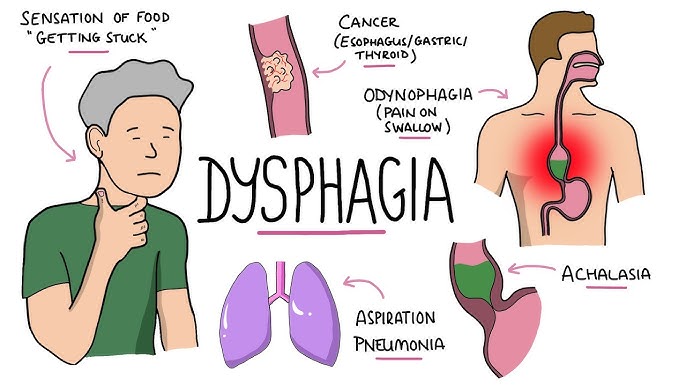Living with dysphagia can be challenging. But modern solutions exist. This article explores various coping strategies and support systems available today for those dealing with swallowing difficulties.
Understanding Dysphagia
Dysphagia is a medical term for swallowing difficulties. It can affect people of all ages. Causes vary. They include neurological disorders, aging, and certain medical conditions. Symptoms range from mild discomfort to severe pain when swallowing.
Recognizing the signs is crucial.
Early intervention can improve outcomes. Common symptoms include:
- Coughing or choking when eating
- Feeling of food stuck in the throat
- Drooling or difficulty managing saliva
- Unexplained weight loss
- Recurrent chest infections
Modern Diagnostic Techniques
Technology has revolutionized dysphagia diagnosis. Video fluoroscopy is now widely used. It provides real-time images of the swallowing process. Fiber optic endoscopic evaluation of swallowing (FEES) is another advanced tool. These methods help in tailoring treatment plans.
Dietary Modifications and Thickeners
Diet plays a crucial role in managing dysphagia. Texture modification is key. Soft or pureed foods are often recommended. Thickeners have become essential tools. They help in adjusting liquid consistency.
SimplyThick is a popular brand. The SimplyThick Instagram pics offer visual guides, so it’s worth checking out. These images can help in understanding proper consistency and also provide serving ideas for thickened liquids.
Swallowing Exercises and Therapy

Exercise can strengthen swallowing muscles. Speech and language therapists often prescribe specific routines.
These may include:
- The Mendelsohn maneuver
- Supraglottic swallow technique
- Effortful swallow
Regular practice is important. It can significantly improve swallowing function over time.
Adaptive Eating Utensils and Tools
Innovation has brought new tools for dysphagia patients. Specially designed cups reduce choking risk. Angled spoons make self-feeding easier. Even plates with raised edges help. These tools promote independence and dignity during meals.
Medication Management

Some medications can worsen dysphagia symptoms. Modern pharmacology offers alternatives. Pill crushers and liquid formulations are available. Always consult a healthcare provider before altering medication forms.
Nutritional Support and Supplements
Maintaining proper nutrition can be challenging with dysphagia. Nutritional supplements are typically necessary. Modern formulations cater specifically to dysphagia patients. They provide essential nutrients in easy-to-swallow forms.
Hydration is crucial. Thickened water products are available. They help ensure adequate fluid intake without increasing aspiration risk.
Technology-Assisted Feeding
In severe cases, technology offers solutions. Feeding tubes provide direct nutrition. New designs are more comfortable and discreet. Some allow for a combination of oral and tube feeding.
Psychological Support
The emotional impact of dysphagia is significant. Modern therapy approaches recognize this. Cognitive-behavioral therapy can help. Support groups, both online and in-person, offer community. They provide a platform to share experiences and coping strategies.
Telehealth and Remote Monitoring
- Telemedicine has transformed dysphagia management. Remote consultations are now possible. Patients can connect with specialists from home. This is particularly beneficial for those with limited mobility.
- Apps for tracking symptoms and food intake are available. They help in monitoring progress and adjusting treatment plans.
Research and Future Prospects
- Ongoing research brings hope. Stem cell therapy shows promise. Neurostimulation techniques are being explored. These could potentially restore swallowing function in some cases.
- Gene therapy is another exciting avenue. It may help in treating certain inherited forms of dysphagia.
Community Resources and Education
Awareness is growing. Many communities now offer dysphagia-friendly dining options.
Educational programs for caregivers are more accessible. Online resources provide valuable information and support.
Living with dysphagia presents challenges. But modern strategies offer hope and improved quality of life. From dietary modifications to advanced therapies, options are expanding. Support systems are becoming more robust.







